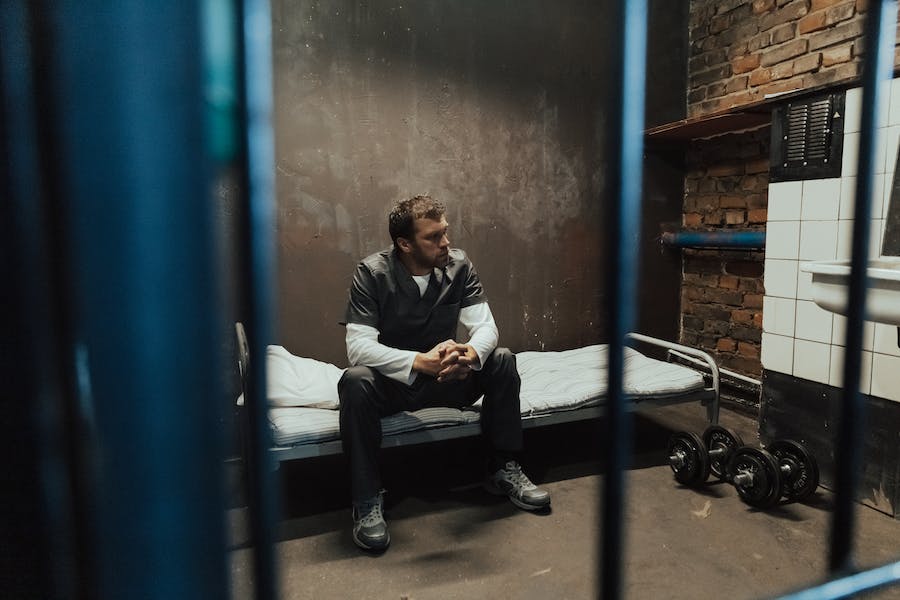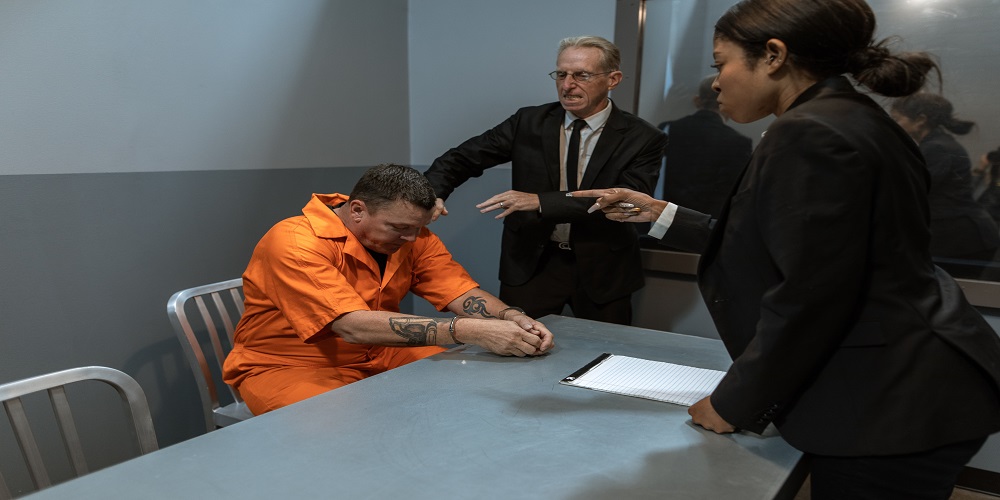Criminal defense lawyers play a crucial role in the justice system, advocating for individuals accused of crimes. However, there are numerous misconceptions surrounding their work that can skew public perception. This article aims to debunk some of these myths, providing a clearer understanding of the realities faced by criminal defense attorneys and their clients.
Understanding the Role of Criminal Defense Lawyers

Before delving into common misconceptions, it’s essential to understand the fundamental role of criminal defense lawyers. They are tasked with defending clients accused of crimes, ensuring that their rights are upheld and that they receive a fair trial. This can include a range of activities: from negotiating plea deals to representing clients in court.
Misconception 1: Defense Lawyers Only Work for Guilty People

One of the most pervasive myths is that criminal defense lawyers only represent guilty clients or those who have committed serious crimes. This misconception can stem from the dramatic portrayals of attorneys in popular media, where defense lawyers are often depicted as morally ambiguous figures.
- Presumption of Innocence: In the justice system, every individual is presumed innocent until proven guilty. Defense lawyers uphold this principle by providing legal representation to anyone accused of a crime, regardless of their guilt or innocence.
- Human Rights Advocacy: Defense lawyers advocate for the rights of their clients, emphasizing that everyone deserves a fair trial and competent representation.
- Case Example: In the landmark case of Gideon v. Wainwright (1963), the U.S. Supreme Court ruled that defendants have a right to counsel, highlighting the importance of defense lawyers in upholding justice.
Misconception 2: All Defense Lawyers Use Underhanded Tactics
Another common stereotype is that defense attorneys employ unethical or deceptive tactics to win cases. While some individuals may engage in questionable practices, the vast majority of lawyers adhere to strict ethical guidelines and professional standards.
- Professional Ethics: Lawyers are bound by ethical obligations that require them to act in their clients’ best interests while also upholding the law.
- Case Studies: Many defense lawyers prioritize honesty and transparency, often choosing to advise their clients against pursuing false claims or misleading testimonies.
- Consequences of Misconduct: Engaging in unethical behavior can lead to severe penalties, including disbarment and criminal charges against the lawyer.
Misconception 3: Defense Attorneys Want to Get Criminals Off the Hook
It’s a common belief that defense attorneys are solely focused on helping criminals escape justice. In reality, their role is more nuanced and involves ensuring that the legal process is followed correctly.
- Legal Process Integrity: Defense attorneys work to guarantee that every aspect of the legal process is followed, which ultimately serves the interests of justice.
- Negotiation and Rehabilitation: Many defense lawyers seek plea deals that may involve rehabilitation programs, which can lead to better outcomes for clients and society.
- Example of Advocacy: In cases where clients may be guilty, defense attorneys often work to mitigate sentences or secure alternative sentencing that focuses on rehabilitation rather than punishment.
Misconception 4: All Criminal Defense Cases Go to Trial
A significant number of people believe that every criminal case ends up in court. In truth, trials are just one possible outcome of the legal process, and many cases are resolved through negotiations and plea deals.
- Plea Bargaining: A vast majority of criminal cases—approximately 90%—are resolved through plea agreements, allowing defendants to plead guilty to lesser charges in exchange for reduced sentences.
- Time and Resource Efficiency: Trials can be lengthy and costly, making plea deals an attractive option for both defendants and the legal system.
- Example: Consider the case of a first-time offender charged with drug possession. An effective defense attorney may negotiate a plea deal that reduces the charge, allowing the client to avoid a felony conviction.
Misconception 5: Defense Lawyers Only Care About Money

While financial compensation is a reality of legal practice, many people mistakenly assume that defense attorneys are solely motivated by money. This oversimplification ignores the personal and ethical commitments that many lawyers feel toward their clients.
- Passion for Justice: Many defense attorneys enter the field out of a genuine desire to help others and ensure justice is served.
- Pro Bono Work: Numerous defense lawyers offer pro bono services, providing legal representation for those who cannot afford it.
- Real-World Example: High-profile cases often highlight lawyers who take on challenging cases for little or no pay, demonstrating their commitment to justice over profit.
Misconception 6: All Defense Lawyers Are the Same

Another misconception is that all defense lawyers possess the same skills and expertise. In reality, there is significant variation in specialization, experience, and approach among criminal defense attorneys.
- Specialization: Some lawyers focus on specific types of crimes, such as white-collar crime, drug offenses, or violent crimes, allowing them to develop expertise in those areas.
- Experience Matters: More experienced attorneys may have a deeper understanding of courtroom procedures and more established relationships with judges and prosecutors.
- Choosing the Right Lawyer: It’s crucial for defendants to find an attorney whose experience aligns with their specific case needs.
Misconceptions about criminal defense lawyers can perpetuate stereotypes and misunderstandings about the legal profession. By debunking these myths, we can foster a more informed perspective on the vital role that defense attorneys play in the justice system. They are not just advocates for the accused; they are essential protectors of individual rights, ethical standards, and the integrity of the legal process. Understanding the realities of their work helps demystify the criminal defense landscape and promotes a more nuanced view of justice.
In summary, criminal defense lawyers are dedicated professionals who navigate complex legal systems to ensure fairness and justice for all. By recognizing their true roles, society can appreciate the importance of their work in upholding the principles of the law.